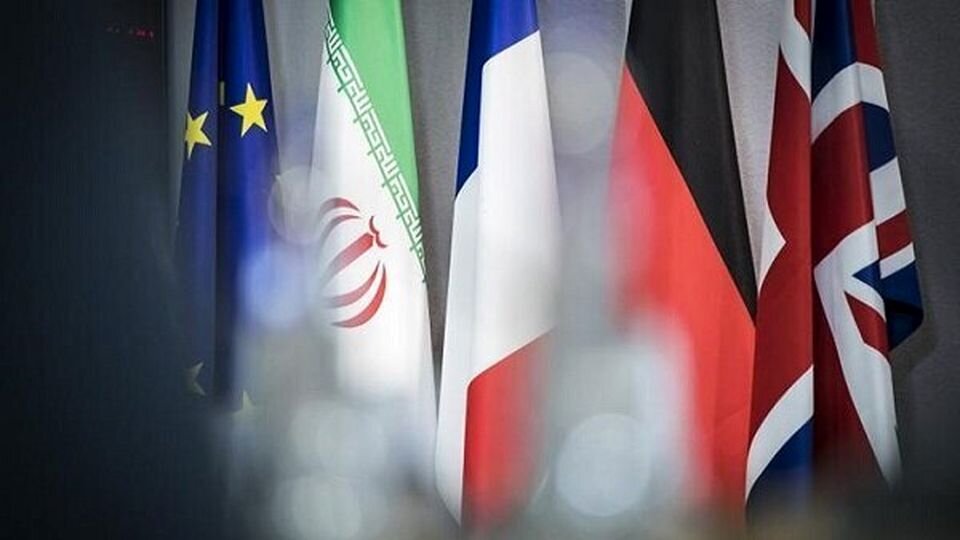EU joins forces with U.S. to derail Vienna talks

TEHRAN – While many observers were expecting a response from the United States to the Iranian views, the European troika in the Vienna talks jumped in with a statement that could undo more than a year of painstaking negotiations.
Nearly two weeks ago, Iran gave a response to an American text submitted via the European Union’s coordinator for the Vienna talks, Josep Borrell. The response was the second in kind. Earlier, Borrell had put forth what he called a “final text.” Iran started studying the text immediately after receiving it. After a week of discussions, Iran submitted its response, which was relayed to Washington by the EU coordinator. Washington, in turn, responded to the Iranian response. And Iran again studied and submitted a second response which is yet to be responded to by the U.S.
The Biden administration described Iran’s latest response as “unconstructive” but refrained from giving a response, sparking speculations about the impact of the U.S. midterms on the talks in Vienna over reviving the 2015 Iran nuclear deal, formally called the Joint Comprehensive Plan of Action (JCPOA).
After long days of guesswork, a response was given, but not from the party meant to do so. The E3 – France, Germany, and the UK- issued a joint statement that seems to have only enthralled the opponents of the JCPOA.
“While we were edging closer to an agreement, Iran reopened separate issues that relate to its legally binding international obligations under the Non Proliferation Treaty (NPT) and its NPT safeguards agreement concluded with the International Atomic Energy Agency (IAEA). This latest demand raises serious doubts as to Iran’s intentions and commitment to a successful outcome on the JCPOA. Iran’s position contradicts its legally binding obligations and jeopardizes prospects of restoring the JCPOA,” the E3 alleged in their statement.
This is while Iran has long said that the IAEA has lost its credibility by pursuing unsubstantiated allegations that are politically motivated and stem from the anti-JCPOA camp.
The E3 countries also appeared keen to issue a thinly veiled threat against Iran, saying, “Given Iran’s failure to conclude the deal on the table we will consult, alongside international partners, on how best to address Iran’s continued nuclear escalation and lack of cooperation with the IAEA regarding its NPT safeguards Agreement.”
The joint statement was seen by experts as an irresponsible move. “Listening to E3 one would think E3 is the aggrieved party who lost over $300b - and 1000s of lives - over the past 3 years because Iran withdrew from JCPOA, reneged on all its obligations and subsequently breached all 11 commitments it made on redressing the situation!” Reza Nasri, an Iran expert, quipped on Twitter.
Aside from irresponsibility, the statement also undermined the ongoing negotiations by deepening the atmosphere of distrust. Also, the statement played into the hands of the opponents of the JCPOA.
“It is unfortunate that with their ill-advised statement, the three European countries are following in the footsteps of the Zionist regime [Israel] to push the talks toward failure, and obviously, if this approach continues, they should also accept responsibility for its consequences,” the spokesman for the Iranian foreign ministry, Nasser Kanaani, said in a statement.
Israel did little to hide its feeling of joy at the E3 statement. “Following the Americans, yesterday the E3 countries announced that a nuclear agreement with Iran will not be signed in the near future, that the IAEA’s open files regarding Iran are not about to be closed,” Israeli Prime Minister Yair Lapid said at a cabinet meeting on Sunday.
He added, “I thank France, the United Kingdom, and Germany for their strong position on this matter. In recent months, we held a discreet and intensive dialogue with them, and presented them with up-to-date intelligence information about Iranian activity at nuclear sites. This afternoon, I will depart for Germany to meet with Chancellor Olaf Scholz. The goal of this visit is coordinating positions on the nuclear issue….”
Lapid boasted, “Together with Alternate Prime Minister Naftali Bennett and Defense Minister Benny Gantz, Israel is conducting a successful diplomatic campaign to stop the nuclear agreement and prevent the lifting of sanctions on Iran. It is not over yet. There is still a long way to go, but there are encouraging signs.”
Israel has worked to stop the signing of the JCPOA and the E3 seem to be aligning themselves with Israel at the expense of more than a year and a half of painstaking negotiations.
The Iranian foreign ministry spokesman gave them a piece of advice in this regard.
Kanaani pointed to the passive approach of the European sides in recent months and also their improper and politically-motivated action to pave the way for the anti-Iran resolution at the International Atomic Energy Agency’s Board of Governors. The foreign ministry spokesman advised the European troika to play a more active role in order to resolve the remaining issues instead of trying to scuttle the process of the negotiations.
